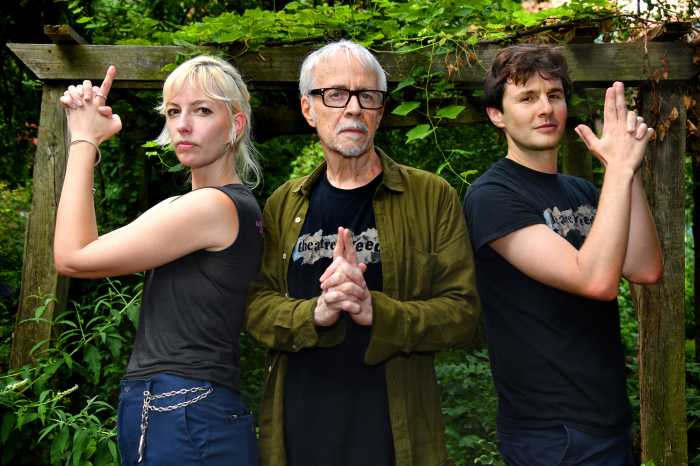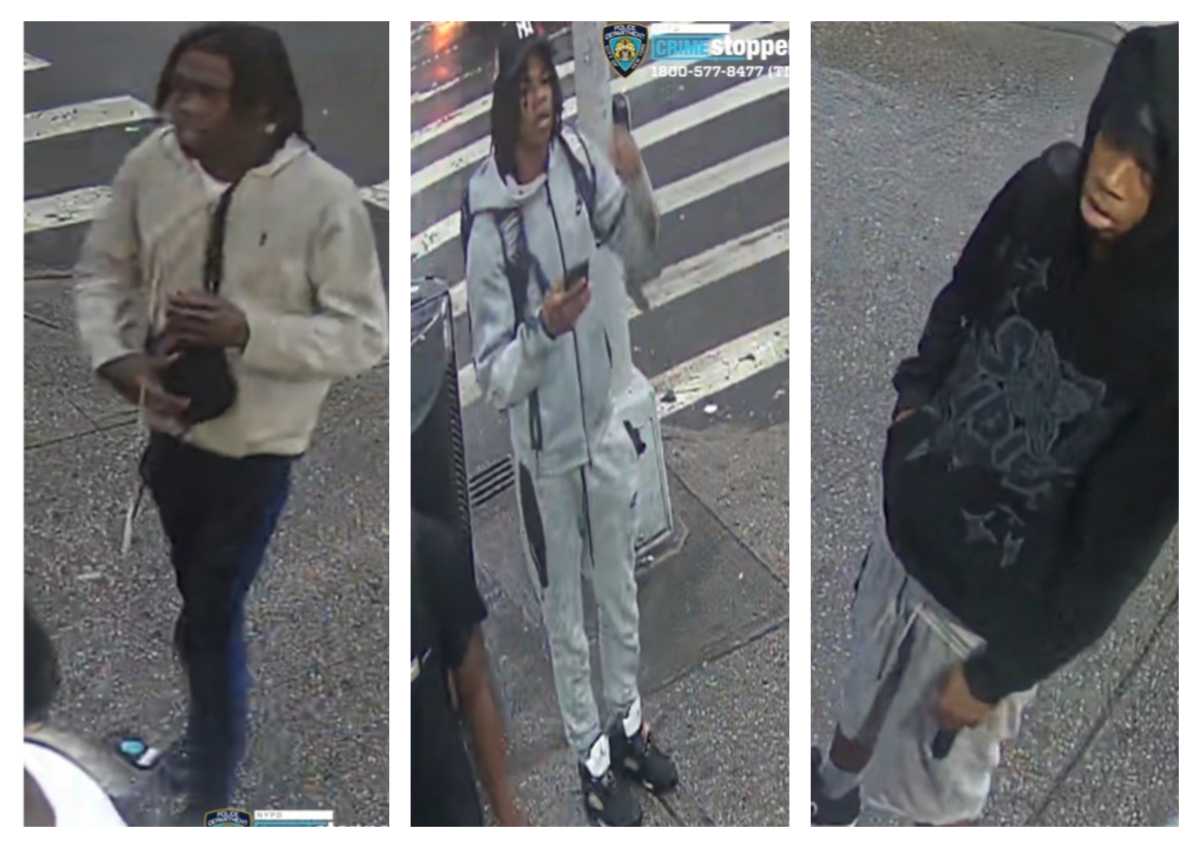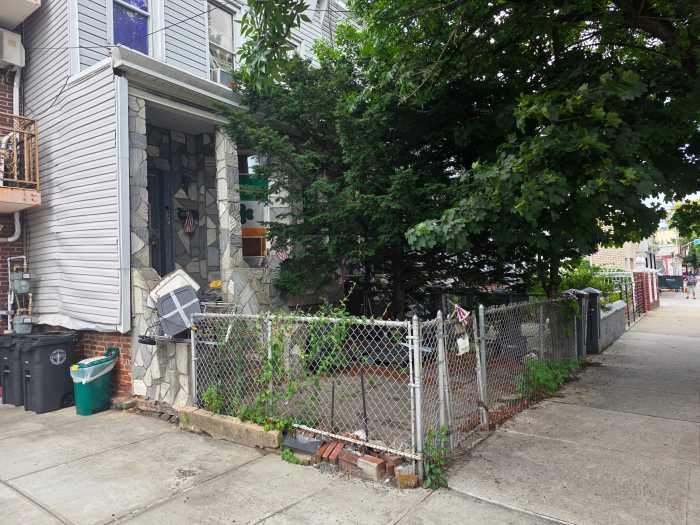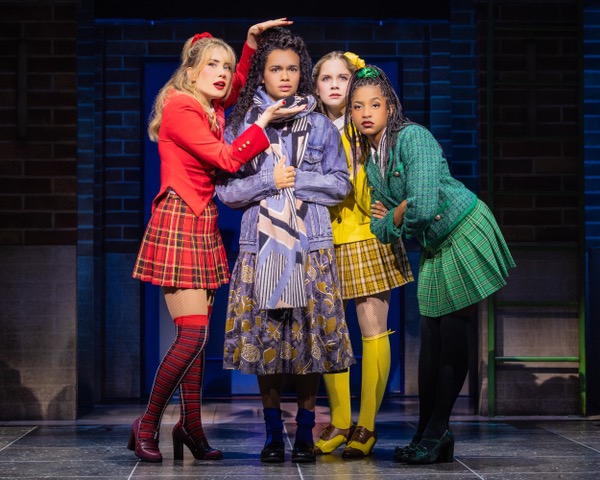By Jerry Tallmer
It was, says Jack Holmes, “a standard agent’s question.” This was 10 or so years ago, when the pride of Scranton, Pennsyl-vania was a wishful actor in New York.
“This agent said: ‘Who do you remind people of?’ and I hemmed and hawed and then she said: ‘Well, you remind me of Robert Kennedy.’ I said: ‘That’s strange, I’m thinking of writing a play about him.’ As soon as I said it I walked out of her office, walked down the street, and said to myself: ‘Yeah, I’m going to do that.’ ”
Holmes at the time was living across the river in Hoboken. He’d read Arthur M. Schlesinger’s “Robert Kennedy and His Times” (Houghton Mifflin, 1980). “I’m a fanatic about books,” Holmes says, “and there was a bookstore in Hoboken I used to haunt. Downstairs in that store I came across an old box, opened it, and the entire box was full of books about Robert Kennedy.”
That clinched it. He knew he had hold of a good idea.
The good idea—written by Jack Holmes, performed solo by Jack Holmes, directed by Larry Moss—opened Tuesday, after ten days of previews, as a Culture Project presentation at 45 Bleecker Street.
At a tryout two years ago at the Sierra Madre Playhouse in the environs of Los Angeles it was called “The Awful Grace of God,” from a line in Aeschylus much admired by Robert Kennedy. Now it’s called, all simply, “RFK.”
A youngish leather-jacketed chap who declines to give his age (but admits “I have no memory of RFK”) he nevertheless has the forelock of RFK, the blue eyes of RFK, and the lean and hungry jawline of RFK. To a request for him to talk like RFK, he says: “Come see the show.”
He had spent the next few years after the bookstore incident “doing other things”—studying acting under William Hickey at the H.B. Studio on Bank Street, studying composition under Stanley Wolfe at Juilliard. (The music in “RFK” is by pianist Holmes.)
And the script, as indicated, took the best part of several years.
“I did it completely on my own,” he says. “My own research, my own feelings, my own take on it. There was a very solitary quality to Bobby Kennedy,” Holmes says. “An introspective quality after November 22, 1963, that makes him ideal for the form of a one-man show.
“I used to rent the Sierra Madre Playhouse one day a week, just for myself. In the empty playhouse I would go up on stage and go through the script, totally by myself. The guy who rented it to me was Barry Schwam. He had no idea what I was doing, until he came in one day about a year later and asked: ‘What are you working on?’ He looked me over and then said: ‘Wow, what a good idea, let me know if you want to do it here. I’ll bring it up at next month’s board of directors meeting.”
And that’s where the piece did open prior to what Holmes calls a six-week “proper run” in July and August 2004 at the Court Theater in Los Angeles. It also had one performance at 45 Bleecker Street, New York City; Alan Buchman, head man of the Culture Project, sat in and liked it.
“And here we are,” says Jack Holmes, son of retired Dr. John Holmes, M.D., GP, and Alice Holmes, the real RFK fan in the family. “I guess she’s a fan of both John and Robert, but more of Robert,” says the middle of her five sons.
“Oh, yeah, we’re Irish,” says Jack Holmes. “I grew up in a big Irish family. Sort of a rough-and-tumble environment. My father?” The playwright rests his chin in his right hand, and thinks. “I know more of my father’s attitude [toward the Kennedys, and RFK in particular] by his response to my play, which was very positive.”
That play, or one-man performance, opens with Robert F. Kennedy, attorney general to his brother the president, brooding about how “Life is a game of Russian Roulette” and about his own tense relations with J. Edgar Hoover, who keeps tabs on everybody, and whose telephone call to Hickory Hill a little less than three years later will abruptly inform Robert Kennedy: “The President’s been shot.”
The play ends with RFK on the high note of having won the California primary on June 4, 1968. He is in the Ambassador Hotel in Los Angeles, on the way to celebrate his moment of triumph. He speaks to his brother – the dead big brother for whom everything, including approval from their father, came so much more easily.
“I’m 42 now,” Robert Kennedy says. “Can you believe it? Johnny, you’d hardly know me.”
In this play, some of which you can argue with in greater or lesser detail—I hardly think Adlai Stevenson gave “boring” speeches, for one small instance, though Robert Kennedy may have thought so, and RFK never jumped until Eugene McCarthy mopped up LBJ in New Hampshire—for all that, in this play you get to know RFK pretty well.





































